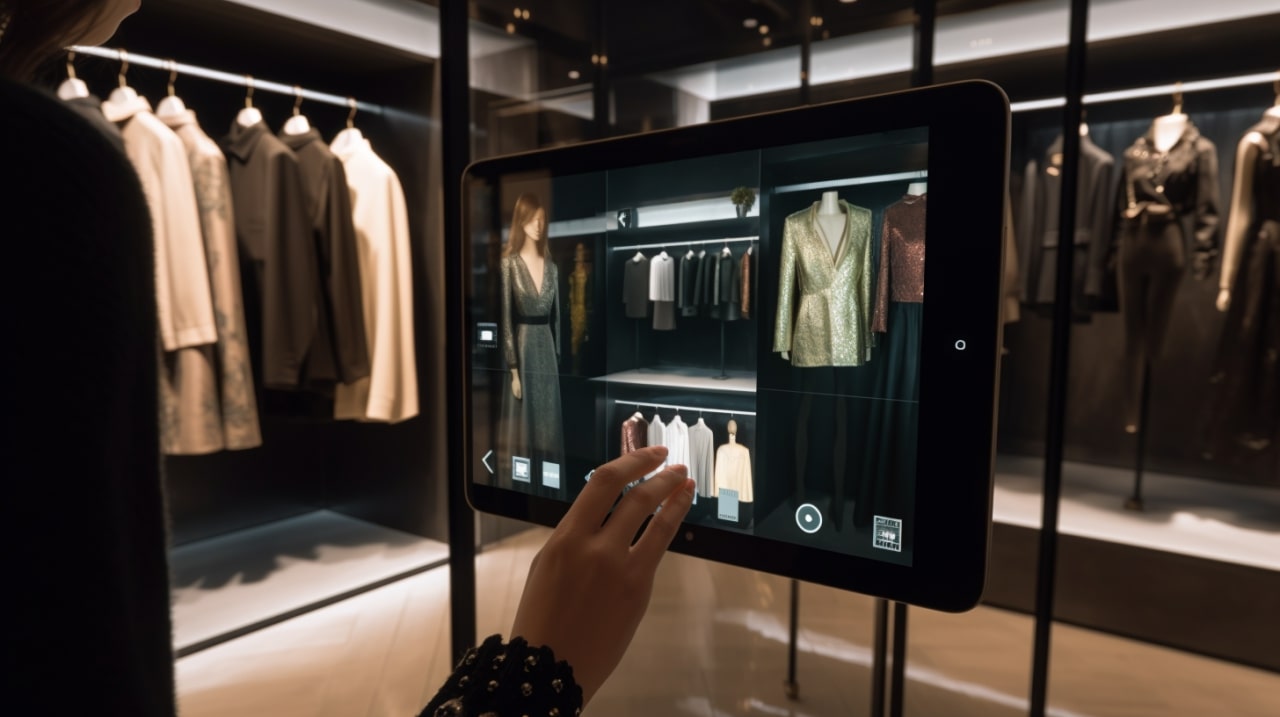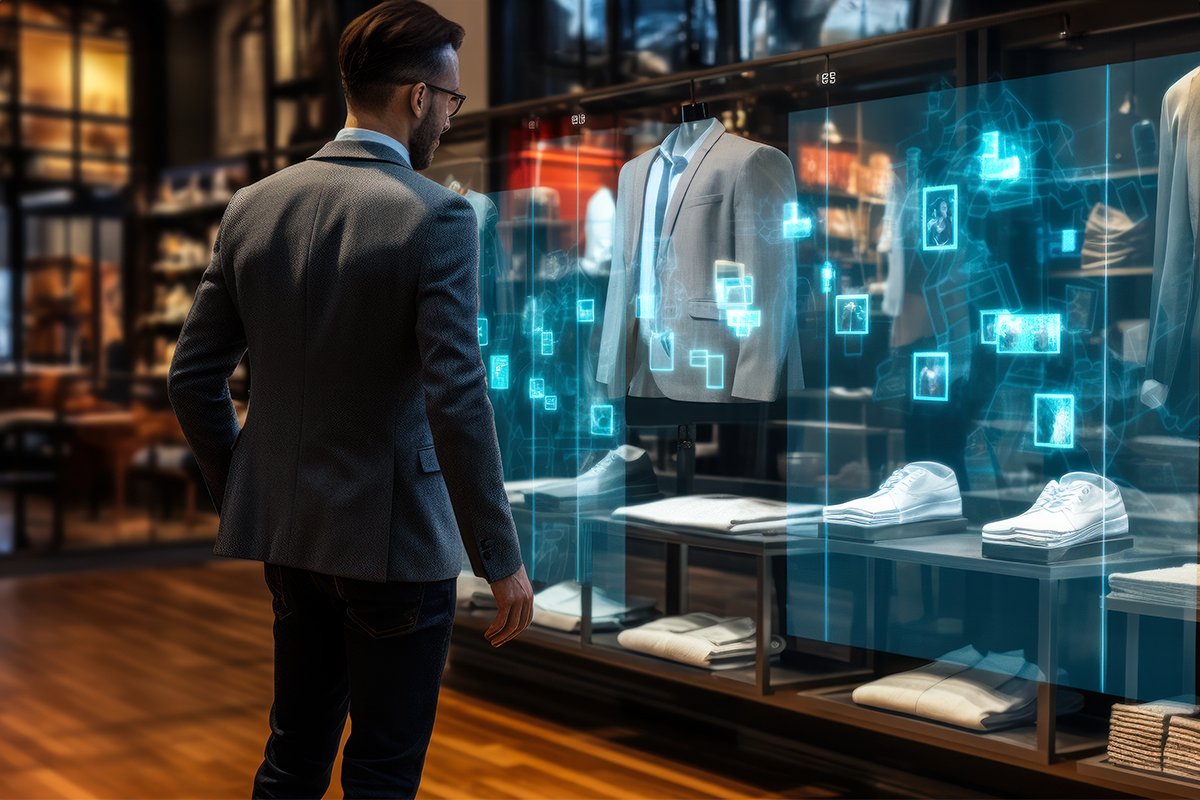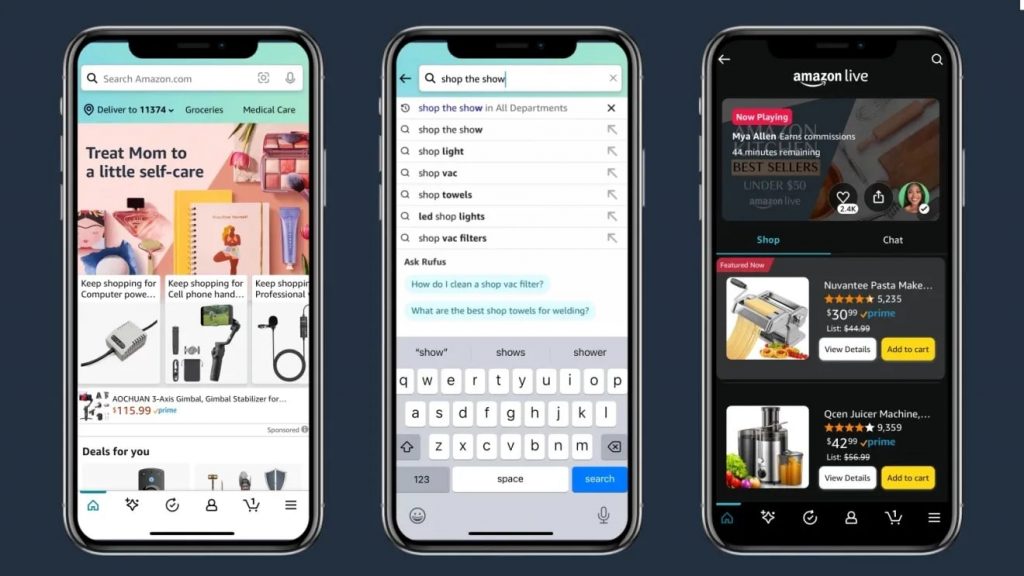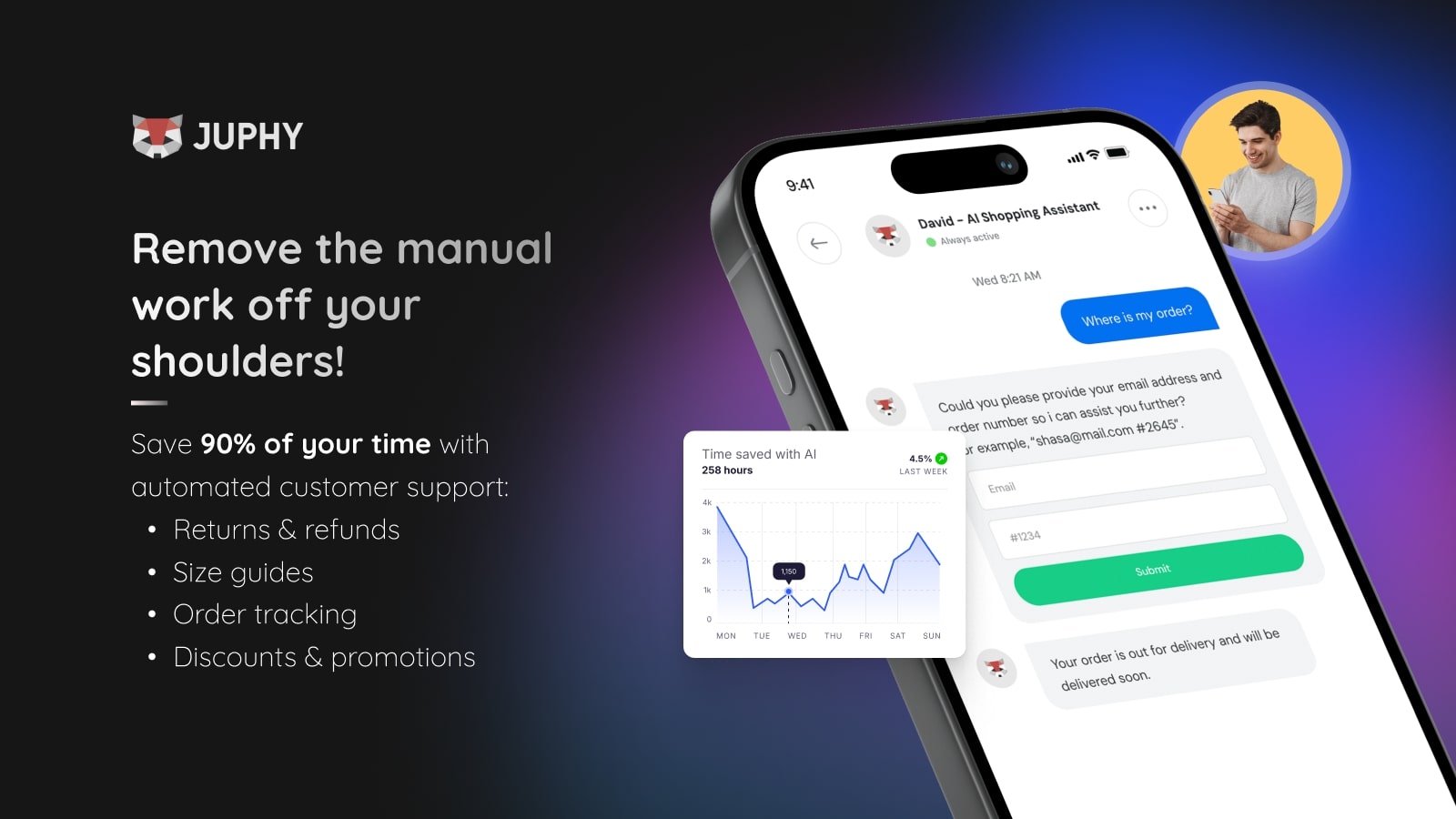Juphy’s Weekly E-Commerce News Express – 22-26 April 2024
Ceyda Duz
Welcome to this week’s edition of our e-commerce and AI news roundup! In this episode, we explore a revealing study on online shopping returns in Germany, and the evolving landscape of luxury retail and its relation to AI. Additionally, we highlight the latest product updates from Picsart, Amazon Live, and Celigo, showcasing the latest innovative advancements. Stay informed with the latest trends and insights in retail, AI, and online shopping!

Understanding Online Shopping Returns in Germany
Returns are the nightmare of online businesses. Some previous research by the retail institute EHI indicates that returns typically cost online sellers between 5 and 10 euros each. Besides the long and sometimes complex process, it takes a lot of time and effort for both merchants and consumers. A recent survey conducted by the German digital association Bitkom reported a significant trend for German consumers: 11% of all online purchases end up being returned. Especially younger generations tend to return items more frequently than older ones, with reasons ranging from ill-fitting sizes to damaged products.

The survey, containing 1,050 German online shoppers aged 16 and above, highlights the challenges faced by retailers in the region, where preventing returns has become a main objective. Among German online shoppers:
- Only 24% never return their purchases.
- Men exhibit a lower return rate (9%) compared to women (14%).
- Individuals aged 16 to 29 return an average of 15% of their orders, while those over 65 return just 7%.

The reasons for returns are diverse, with size discrepancies (67%) and product damage (56%) being the most common. Additionally, dissatisfaction with the product’s quality, mismatched descriptions, and delivery of incorrect items contribute to return rates.
To address this issue, retailers are increasingly turning to digital tools such as AI-based shopping assistants and virtual fittings to streamline the shopping experience and minimize returns, benefiting both consumers and businesses
Generative AI in Luxury Retail: Opportunities and Challenges
In the rapidly evolving landscape of e-commerce and retail, AI’s influence is undeniable, affecting every subsector in common or unique ways. Luxury brands, known for their emphasis on authenticity and human connection, are no exception. While they have long used AI for tasks such as data analysis, supply chain management, and operations, the birth of generative AI represents a significant jump forward, bringing both promise and risk to the luxury retail sector.

Luxury brands thrive on the genuine human touch and unique connections they offer, qualities that could be compromised by the unbounded and quick adoption of generative AI. Despite its potential to enhance creativity, there’s a real risk of weakening the essence of luxury through automated processes empty of human insight and context, which are vital to the sector.
However, luxury brands are aware of both the opportunities and risks posed by generative AI. Consequently, they approach its implementation with caution, prioritizing AI safety, human-centered design, and ethical usage. Their objective is not to replace human creativity but to expand it with AI capabilities, enhancing operational efficiency while maintaining the human-centric luxury experiences that define their brands.

As luxury brands navigate this new area, the focus remains on finding a balance between human creativity and technological innovation. While AI holds great promise for enhancing personalization and customer experiences, it’s essential to proceed with caution, particularly regarding consumer privacy and data security. Transparency and responsible AI deployment are key to ensuring that AI complements rather than replaces the human element in luxury retail.
Ultimately, the future of luxury retail lies in bridging the gap between human creativity and technological advancement. While AI can be a powerful tool, it’s the fusion of human insight and innovation that will shape the future of retail, including the luxury sector.
Picsart’s Product Photography

Picsart, a content creation platform, has introduced a new tool for product photography: Smart Background. This feature elevates ordinary product shots into captivating marketing assets and campaigns. Utilizing AI technology, Smart Background intelligently analyzes subjects, recommends tailored backgrounds, and integrates realistic drop shadows and contextual elements. Users can use Picsart’s extensive template and asset library to further enhance their creations, combining Smart Background with dynamic videos and animated images for unparalleled visual impact.
Amazon Live’s Shoppable Channel
Amazon Live has unveiled an exciting new addition to its platform: a shoppable channel now available on Prime Video and Freevee. U.S. shoppers can immerse themselves in a unique shopping experience, browsing products alongside creators, brands, and celebrities. This interactive, shoppable, and free ad-supported channel features Amazon’s innovative “Shop the Show” technology, empowering consumers to seamlessly shop and engage with content using their mobile devices.

Celigo & TikTok Shop for Streamlined Business Operations

Celigo, a platform-as-a-service provider for businesses, has joined forces with TikTok Shop to offer the TikTok Shop Connector. This integration solution ensures seamless synchronization of data across multiple applications, covering crucial areas such as product data, orders, fulfillment, and accounting. With this collaboration, Celigo helps sellers with comprehensive insights, enabling informed decision-making processes. By leveraging automation, retailers can access valuable intelligence on market trends, consumer behavior, and product performance.
Enhance Customer Connections with Juphy AI for Shopify
Create deeper connections with your Shopify customers through the power of Juphy AI. In the world of online business, providing personalized attention to customer inquiries is important. But being available round-the-clock, especially outside office hours, can be challenging. That’s where Juphy’s AI Agent comes in. With just a click in the Shopify app store, you can activate Juphy AI and witness its magic in under 2 minutes.
From addressing common queries and FAQs to resolving pre and post-purchase concerns, product inquiries, and shipping issues, Juphy’s AI Agent is your 24/7 all-star employee. By ensuring your customers feel valued and attended to, Juphy AI leaves a lasting impression, ensuring they leave your Shopify store with a smile.
Experience the difference today: apps.shopify.com/juphy

Key Takeaways
Understanding Online Shopping Returns in Germany: German consumers return 11% of online purchases, with size discrepancies and product damage being common reasons, driving retailers to adopt digital tools like AI-based shopping assistants to minimize returns.
Generative AI in Luxury Retail: Luxury brands navigate the integration of generative AI cautiously, prioritizing human-centered design and ethical usage to preserve the essence of luxury while enhancing operational efficiency.
Picsart’s Product Photography: Picsart introduces Smart Background, utilizing AI to transform product shots with tailored backgrounds and dynamic elements, enhancing visual impact for marketing campaigns.
Amazon Live’s Shoppable Channel: Amazon Live launches a shoppable channel on Prime Video and Freevee, enabling interactive shopping experiences with creators, brands, and celebrities, using innovative “Shop the Show” technology.
Celigo & TikTok Shop Integration: Celigo collaborates with TikTok Shop to provide seamless synchronization of data for retailers, enhancing business operations by offering insights into market trends and consumer behavior through automation.

